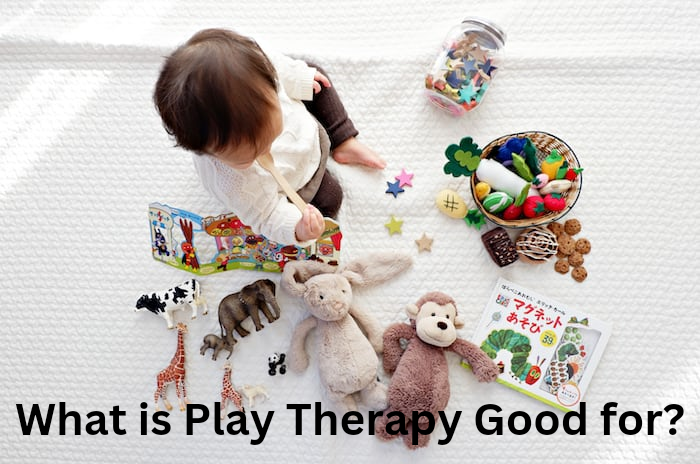What is play therapy good for? Play therapy is good for problem-solving, decision-making, controlling negative behaviors, boosting creativity, and building family connections.
However, a lack of these skills can adversely affect the development of a child, impacting their ability to solve some personal and professional challenges, reach a decision on important issues, live up to family and societal norms, be creative, or relate well to family.
Top 5 Benefits of Play Therapy
Here are the top five benefits of play therapy that you should know:
Problem-Solving
Play therapy is good for problem-solving. It helps children achieve their goals by overcoming obstacles and gives them the ability to identify problems, find answers to them, and propose solutions. Sometimes, the problems range from simple personal tasks to complex business and technical issues, but as your child plays, they may learn how to solve the problems independently, either now or later in life.
Decision-Making
Decision-making is the process of reaching a decision. With a good decision-making process in place, you can make more deliberate, thoughtful decisions. People often struggle with making decisions because they lack the ability to make sound decisions on their own, oftentimes due to uncertainty, bias, conflict, limits of reasoning, or temporal constraints. With play therapy, a child may begin to gain decision-making skills as they grow and avoid some of these challenges during adulthood.
Controlling Negative Behaviors
Sometimes, children can reject certain foods, refuse to wear some clothes, hurt others by biting and kicking them, throw tantrums, or become very angry, especially when they don’t get their way. At other times, they can whine, tell lies, or become defiant and disrespectful. Play therapy can help control some of these forms of negative child behavior by giving them the opportunity to freely express themselves.
Boosting Creativity
Creativity is the ability to use your imagination to produce a new idea or product. Children can learn creative skills through play therapy, for example, through drawing, cutting and pasting, and make-believe or pretend play. This can spark their imaginations, offer them an opportunity to explore a whole lot of possibilities, and help them develop unique and creative solutions to certain challenges.
Building Family Connections
Play therapy can help you build family connections so that you can understand and communicate easily with your family. Without a robust family connection, there’s bound to be frequent conflicts between family members. This can worsen with parents, siblings, or extended family members picking sides with one another, thus leading to arguments, resentment, violence, and revenge.
All in all, play therapy can allow children to solve problems, make decisions, control behaviors, boost their creativity, and build family connections. No wonder they say all work and no play makes Jack a dull boy.
We hope that answers the question, “What is play therapy good for?” Isn’t it?
How CCHC Can Help
The Center for Connection, Healing, and Change takes an interdisciplinary approach, interweaving psychotherapy and neuroscience with the timeless wisdom of mindfulness and meditation.
Our therapists work with couples, children, teens, families, and adults—all from a systemic and holistic perspective.
We are particularly committed to providing services grounded in trauma-informed care, somatic and body-based approaches, and attachment-focused ways of working.
Schedule a free consultation with us today, or visit our offices in Woodbridge or Fairfax.




